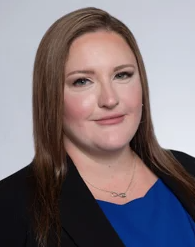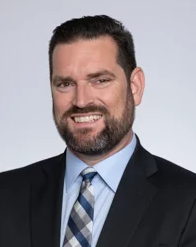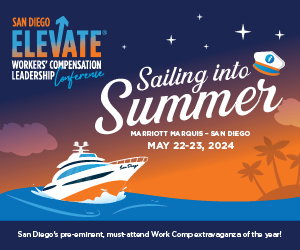Industry Insights
September 29, 2022
Uribarri and Uribarri: WCAB Provides Guidance on COVID-19 Presumption
- State: California
- - 0 shares
A recent Workers' Compensation Appeals Board panel decision stating that the “executive order” presumption did not apply to a probation officer’s alleged COVID-19 infection is worth taking note of, according to one of the leading legal research services in the California workers’ compensation system.

Jemma S. Uribarri
The COVID-19 pandemic provided an unexpected onslaught of emergency orders and regulations that significantly changed the landscape of workers’ compensation. These orders and their successors provided inconsistent rules and loopholes, and parties to claims were left without existing precedent with which to apply them.
Though the recent panel decision of Jackson v. County of Los Angeles has not yet been designated as a significant panel decision, there is now a hint as to how these orders, regulations and statutes will be applied.
Our friends at LexisNexis have deemed this outcome a “noteworthy” panel decision, which means its razor-sharp editorial team believes it’s worth paying attention to.

Zane P. Uribarri
As we know, on May 6, 2020, Gov. Gavin Newsom issued Executive Order n-62-20, later codified as LC 3212.86, which covers diagnosis/positive tests from March 19, 2020, to July 5, 2020, and provides for a presumption of industrial causation of illness. The statute is silent with regard to presumption of industrial causation for dates of illness prior to March 19, 2022, which indicates that the applicant bears the burden of proof for those dates of injury.
In Jackson, a probation officer contracted COVID-19 on March 11, 2020, which precedes the period covered by the presumption. The matter proceeded to AOE/COE trial, and the judge entered findings of fact on June 1, 2022, concluding that “applicant sustained industrial injury to ‘the body system, COVID-19, circulatory system, respiratory system, [and] psyche/stress.’”
This finding was based upon the presumption that has been codified by Labor Code 3212.86 and the findings of the qualified medical examiner.
On reconsideration, the WCAB found that the presumption created by Executive Order n-62-20 applied only for employees who worked in person from March 19, 2020, through July 5, 2020, and, therefore, the applicant’s claim did not fall within that presumption.
Furthermore, the WCAB held that the QME’s opinion was not substantial evidence of the issue of causation, as it was not provided with specific history given in trial testimony, including working conditions, frequency and duration of contact with the public and co-workers, and the fact that none of applicant’s co-workers were diagnosed with COVID-19 during any relevant period. Because of those issues, the board remanded the case back down to the trial level for further development of the record and a new decision.
In practice, the handling of litigated COVID-19 claims has been complicated by the lack of guidance in applying the new statutes and regulations.
Many common questions regarding the COVID presumption include:
- What is a valid test?
- How do we calculate an outbreak?
- What people do we count in an outbreak calculation?
These questions are subject to a wide variety of interpretations and opinions, but the Jackson v. County of Los Angeles case demonstrates the willingness of the WCAB to look at the legal requirements from the statute to prove a claim and affirmatively state that the statutes that govern a claim must be followed.
The claimed injury in Jackson was outside the applicable time frame during which the executive order and Labor Code 3212.86 applied. Since the date of injury predated the presumption law, the reversal on this ground by the board is a reasonable adherence to the law as written.
While there has been inconsistent application across venues and the presumptions are sometimes applied outside of the letter of the statute, the direction the WCAB provides through the Jackson case will be helpful in the handling of claims going forward.
Jemma S. Uribarri and Zane P. Uribarri are partners at the Law Offices of Bradford & Barthel’s Ontario office. This entry from Bradford & Barthel's blog appears with permission.
Advertisements
Columns
- Langham: Uniformity in Regulations 04/25/24
- Kamin: Expanding the Good-Faith Personnel Action Defense 04/24/24
- Moore: Reciprocity Adds Authority 04/23/24
- Montgomery: Sedgwick Tries PPO Discount for Med-Legal (Again) 04/19/24
- Kamin: More Policy Exclusions Would Reduce Losses 04/18/24
- Phillips: It's All Settled 04/17/24
- Snyder: Public Benefit Rules Have Changed, but It Might Not Make a Difference 04/12/24
- Headrick: Clearing Up a Common Misconception 04/11/24
- Snyder: Litigation Guidelines Should Define Four Settlement Triggers 04/10/24
- Kirsch: Depositions of Comp Carrier Employees After Intervening in Third-Party Actions 04/09/24
- Wilson and Bennett: Could AI Have Prevented the Opioid Crisis in Workers' Comp? 04/08/24
- Moore: Pandemic Effect Over in March 2027. Really? 04/05/24
- Geaney: A Brief History of Our State's Workers' Compensation Act 04/04/24
- Kamin and Larres: Significant Panel Decision Clarifies Recon Confusion 04/03/24
- Gelman: Exposed to 'Forever Chemicals' 04/02/24
- Montgomery: Cyberattack Delays Payment of San Francisco Bills 04/01/24
- Young: Indoor Heat Regs in Turmoil 03/29/24
- Langham: Shootings and Compensability 03/27/24
- Geaney: Third-Party Liens Not Always Due Right Away 03/26/24
- Larres: State Supreme Court Denies Review of Our Appellate Win 03/25/24
Now Trending
- Workers' Compensation News
-
Calif. DWC
Launches Portal for QME…
Posted on Apr 24, 2024Dr. Ron Perelman says: “The problem is that most QMEs are older docs. Many are semiretired.…”
-
Calif. DWC Updates
Time-of-Hire…
Posted on Apr 23, 2024
-
Calif. WCIRB
Approves Recommendation for 0.9%
Rate…
Posted on Apr 18, 2024
-
Calif. Committee
Passes Bill to Expand 4850…
Posted on Apr 22, 2024
-
Calif. Committee
Passes Bill to Revise Poster…
Posted on Apr 19, 2024
-
Calif.
Appropriations Committee Places TD
Bills on Suspense…
Posted on Apr 24, 2024
-
Calif. Cal/OSHA
Cites Construction Company $371,100
for Fatal Trench…
Posted on Apr 22, 2024
-
Ore. Worker Can
Request Examination if Carrier
Supports Claim Denial With IME…
Posted on Apr 22, 2024
-
Minn. Supreme
Court Upholds Award to Social
Worker for…
Posted on Apr 19, 2024
-
Ark. Worker Not
Entitled to Additional Benefits
After Date of…
Posted on Apr 22, 2024
Jobs
Upcoming Events
May 5-8, 2024
Risk World
Amplify Your Impact There’s no limit to what you can achieve when you join the global risk managem …
May 13-15, 2024
NCCI's Annual Insights Symposi
Join us May 13–15, 2024, for NCCI's Annual Insights Symposium (AIS) 2024, the industry’s premier e …
May 13-14, 2024
CSIA Announces the 2024 Annual
The Board of Managers is excited to announce that the CSIA 2024 Annual Meeting and Educational Con …
Social Media Links
c/o Business Insurance Holdings, Inc.
Greenwich, CT 06836





No Comments
Log in to post a comment